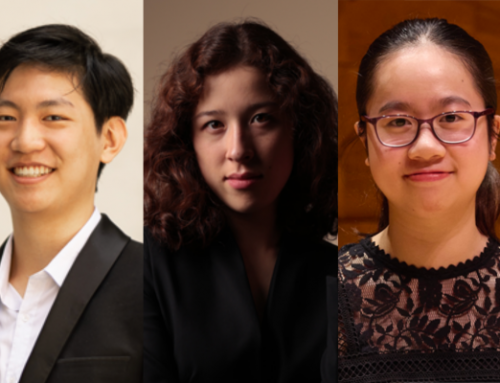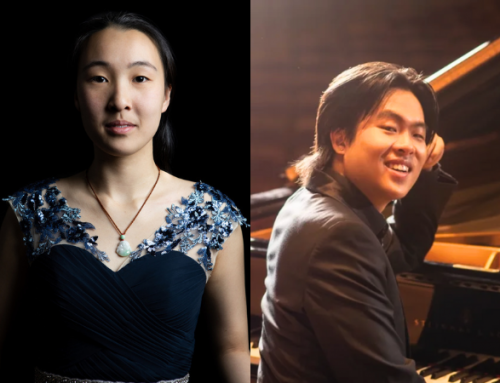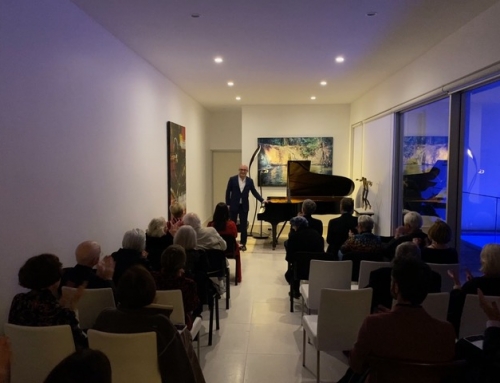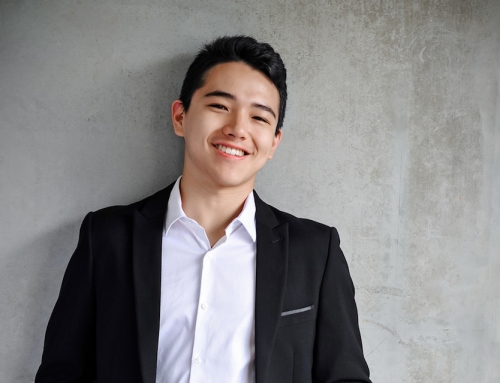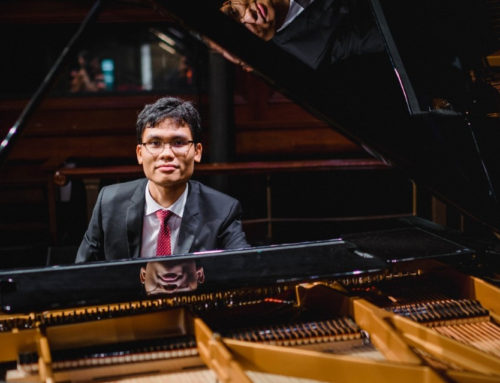An interview with our 2020 award winners
Joy Chen and Jake Cheong
The Foundation’s two award recipients for 2021 are Joy Chen and Jake Cheong. Even though they will be entering a highly competitive and stressful world, both intend to become concert pianists.
Apart from playing the piano exceptionally well, how do they equip themselves to handle the demands of one of the toughest of all careers? We asked each of them some questions to find out.
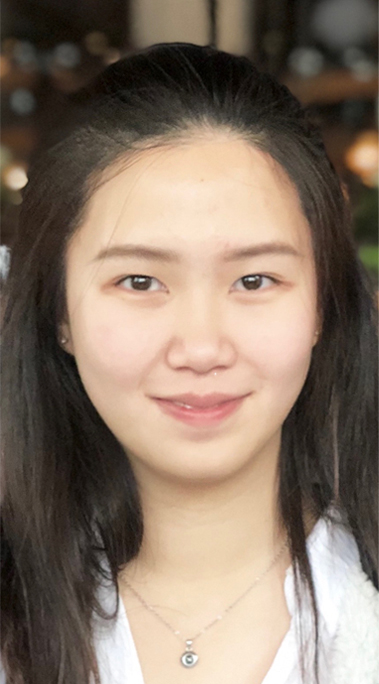
Joy Chen
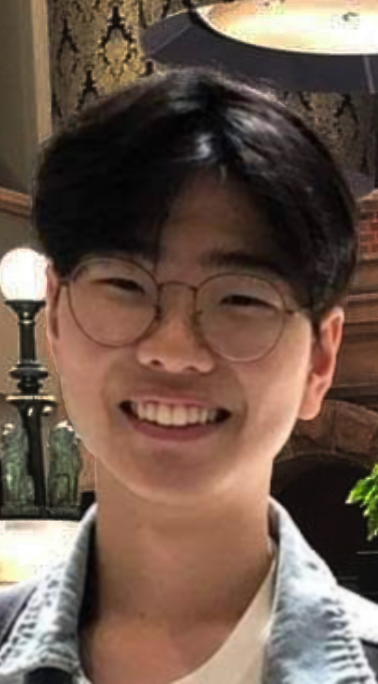
Jake Cheong
The Theme and Variations Foundation likes to keep track of how its financial assistance will help its award winners. How do you intend to apply yours?
Joy: I am planning to use the Theme & Variations Foundation Award for international competitions and masterclasses overseas in the future.
Jake: I intend to apply the Theme and Variations Foundation Award towards international events such as competitions, masterclasses, and overseas performance opportunities.
What influenced your decision to pursue a career as a pianist?
Joy: I have always enjoyed spending time on the piano since a young age. Throughout the years, I find playing piano becomes one of my daily routine, and I gained more interest in discovering and playing music in different styles.
Jake: Since I was young, I have enjoyed playing the piano and performing in front of an audience. I continuously played the piano through the years and instead of being bored from it, I gained more passion and knew this was what I wanted to do.
Where are you at right now with your musical studies and where you will you be headed next?
Joy: I have just finished my second year at the Sydney Conservatorium of Music, and is about to start my third year. In the coming years, I wish to attend more masterclasses overseas, and hopefully can continue my Master degree overseas or at the con.
Jake: I will be starting my third year of studying Bachelor of Music (Performance) at the Sydney Conservatorium of Music. I was planning to participate in international events but with the current Covid-19 situation, I will have to push those plans till later. I intend to use the time now to further develop my musical skills and techniques.
What qualities do you look for in a teacher?
Joy: I look for someone that is supportive, and challenges me in my learning progress. Also someone can inspire me musically, guide me to develop a deeper understanding of each musical work, and portraying the style accurately, while giving me enough freedom to present my own interpretation.
Jake: I look for a teacher who challenges and leads their students out of their comfort zone for further growth in their musical studies. A teacher who directs the students towards the appropriate style while giving them freedom to apply their musical interpretation to grow their unique musical voice.
What other parts of your education are important to you and have they been beneficial to your music?
Joy: I have discovered the importance of knowing the history and context behind the musical works, as it helps me to present the style and characteristics more accurately.
Jake: I found the theory subjects like harmony and aural beneficial towards my musical studies. Studying harmony allowed me to improve on analysing the harmonic progressions in my pieces which also improved my memory of the works. Studying Aural has improved my listening skills in identifying various colours and tones.
What would be your typical practice routine in a day? Do you have an exercise routine to maintain your technique?
Joy: I don’t have a set routine for my daily practice, but I try to run through the technical parts in each of my piece every day.
Jake: I don’t have a set practice routine, but I practise scales and arpeggios to keep my fingers moving and warmed up. The exercise routine depends on the pieces I’ll be practicing that day. If a piece has lots of repeated notes passages, I will start by doing repeated notes exercises.
How do you go about memorising a piece?
Joy: I am not particularly good with memorising music. Usually I do muscle memory and visual memory first, then analyse the spots that I have problem with, in order to get a deeper understanding of the piece, which helps to secure my memory.
Jake: I personally don’t have a set plan to memorising a piece as it comes naturally over time and continuous playing. I found that memorising the melody and harmonic progressions can accelerate the progress of memorising a piece.
How important is sight-reading? How to you rate yourself?
Joy: I think sight-reading is an essential skill for pianists, as it can fastens the learning progress, which helps the pianist to build up their program. I don’t think sight-reading is my strongest point, I am still trying to improve in daily practices.
Jake: I believe sight-reading plays a big role in the progress of my musical studies. A fast sight-reader has the advantage of learning the pieces quickly and further enhancing their technique. My sight-reading skills can be much better, but it is enough to get myself to learn a piece in a short period of time.
Do you prefer to play solo, with an orchestra, in an ensemble, or accompanying?
Joy: I enjoy playing in all forms, as they have their own characteristics. At the moment, I have not played with orchestra yet, I am still working to achieve that.
Jake: I have spent most of my time playing solo with some accompanying. I haven’t had much experience in an ensemble and would like to gain more experience during my studies at the Conservatorium. I hope to get an opportunity to perform with an orchestra someday!
Do you get nervous before you play and, if so, what do you do to overcome it?
Joy: Yes, I get nervous before my performance almost every single time. I always flip through my scores before my performance to refresh my visual memory, which also help me to focus more on my music.
Jake: Like most other performers, I do get very nervous before I play. I feel the most performance anxiety when waiting to go out to perform. However, once I am up on the stage I start to calm down and relax. I have noticed the more confident I am, the less nervous I get so I aim to get my pieces ready to the point I feel confident and can play comfortably.
How does playing in a competition differ from playing a recital?
Joy: For me personally, there’s not much difference in playing in competitions and recitals, as I get nervous in both situations.
Jake: I like to believe that there is no difference between playing in a competition and a recital. They are both the same performance with the purpose of moving the audience through music.
Is there a competition you would love to enter? Are there composers and works to include and those to avoid in competitions?
Joy: There are a lot of competitions that I would love to try out, it is hard to choose a specific one as every competition is a good experience. Hopefully in the future, I will be able to participate in some bigger international competitions. I don’t think there’s a specific work that I have to avoid in competitions, but I always try to consider both ‘popular’ pieces and less known pieces in my program to create more variety.
Jake: I think any international competition is a great way to build experience and motivate myself. I believe any work chosen by the performer is suitable for any competitions. Competitions are just another performance with the purpose of communicating with the audience through music and this is possible with any choice of repertoire.
Who are your favourite composers and pieces?
Joy: There are a lot of composers and pieces that I enjoy playing. I have to say Rachmaninoff is one of my favourite, especially his Sonata No.2. Recently, I rediscovered my interest in playing Mozart’s work, as the elegant characteristics sounds very refreshing after all the intense pieces in my program.
Jake: My favourite composer for piano solo pieces is Liszt. Liszt composed many beautiful melodies while making it technically challenging which makes it exciting to play. Some of my favourite pieces include Ballade no.2, Tarantella and Mazeppa. I also love Rachmaninov’s Piano Concertos no.2 and 3 and wish to play them someday!
Which international pianists do you admire and why?
Joy: There are a lot of pianists that I admire, Martha Argerich is one of them. I enjoy listening to her interpretation of works in different styles. Watching her performance is also an enjoyment, not only her technical skills are very impressive, the way she conveys the emotions behind the work strongly attracts the audience.
Jake: I have recently been following the pianist Seong Jin Cho after hearing his performance of Chopin Etude Op.10 No.1 in the International Chopin Piano Competition. I was stunned by his accuracy and clarity in his sound. I have also been following the pianist Alexander Gavrylyuk after hearing his performance of Prokofiev Sonata no. 6. I was very surprised and excited to participate in a masterclass with him!
If you could have a ticket to a piano recital by one pianist, alive or dead, who would it be?
Joy: I would love to watch Rachmaninoff’s recital.
Jake: I would love to watch Liszt or Prokofiev perform their own difficult works to hear their intentions and see how well they can play it!
What do you do to relax?
Joy: Since piano practice requires me to spend a lot of time by myself with full concentration, during my free time, I prefer to hang out with friends and family, also travelling, watching movies or drawing.
Jake: I like to stay active, so I go out to exercise or swim but when I feel lazy, I relax by watching movies and playing video games with friends. I also like to arrange popular songs on the piano in my spare time.


